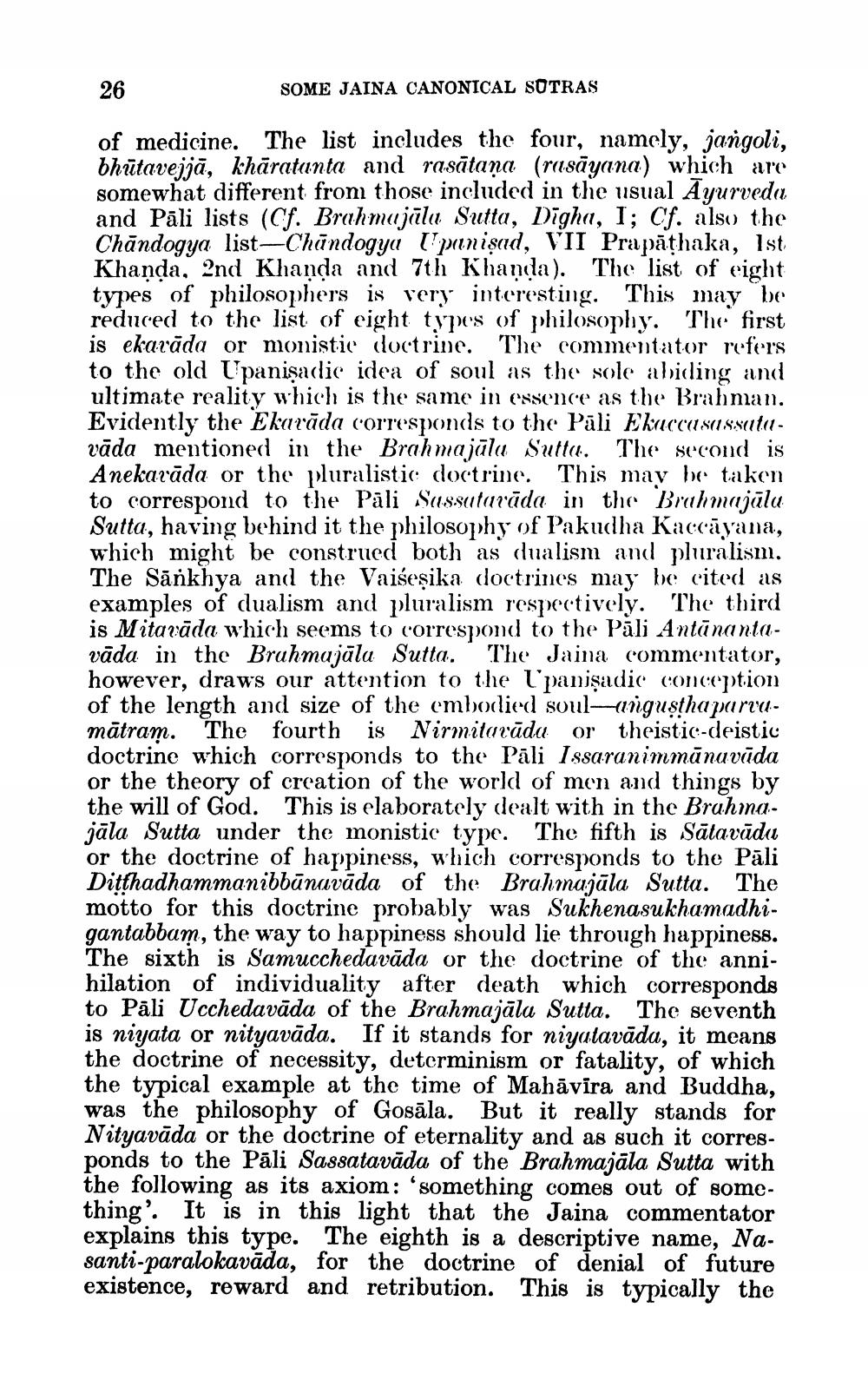________________
26
SOME JAINA CANONICAL SOTRAS
of medicine. The list includes the four, namely, jangoli, bhitavejjā, khāratunta and rasātana (rasāyana) which are somewhat different from those included in the usual Ayurveda and Pāli lists (Cf. Brahmajäla Sutta, Digha, I; Cf. also the Chăndogya list-Chündogya Upanisad, VII Prapāthaka. Ist Khanda, 2nd Khanda and 7th Khanda). The list of eight types of philosophers is very interesting. This may be reduced to the list of eight types of philosophy. The first is ekarāda or monistie doctrine. The commentator refers to the old Upanisadie idea of soul as the sole abiding and ultimate reality which is the same in essence as the Brahman. Evidently the Ekarāda corresponds to the Pāli Ekucousussatuvāda mentioned in the Brahmajāla Sutta. The second is Anekavāda or the pluralistic doctrine. This may be taken to correspond to the Pāli Sassutarāda in the Brahmajūlu Sutta, having behind it the philosophy of Pakudha Kaccāyana, which might be construed both as dualism and pluralism. The Sānkhya and the Vaiseșika doctrines may be cited as examples of dualism and pluralism respectively. The third is Mitavāda which seems to correspond to the Pāli Antānantavāda in the Brahmajāla Sutta. The Jaina commentator, however, draws our attention to the l'panişadic conception of the length and size of the embodied soul-angusthapariamātram. The fourth is Nirmitavādu or theistic-deistic doctrine which corresponds to the Pāli Issaranimmānavāda or the theory of creation of the world of men and things by the will of God. This is elaborately dealt with in the Brahmajāla Sutta under the monistic type. The fifth is Sātavāda or the doctrine of happiness, which corresponds to the Pāli Ditthadhammanibbūnavāda of the Brahmajūla Sutta. The motto for this doctrine probably was Sukhenasukhamadhi. gantabbam, the way to happiness should lie through happiness. The sixth is Samucchedavāda or the doctrine of the annihilation of individuality after death which corresponds to Pāli Ucchedavāda of the Brahmajäla Sutta. The seventh is niyata or nityavāda. If it stands for niyatavāda, it means the doctrine of necessity, determinism or fatality, of which the typical example at the time of Mahāvīra and Buddha, was the philosophy of Gosāla. But it really stands for Nityavāda or the doctrine of eternality and as such it corresponds to the Pāli Sassatavāda of the Brahmajāla Sutta with the following as its axiom: 'something comes out of something'. It is in this light that the Jaina commentator explains this type. The eighth is a descriptive name, Nasanti-paralokavāda, for the doctrine of denial of future existence, reward and retribution. This is typically the




